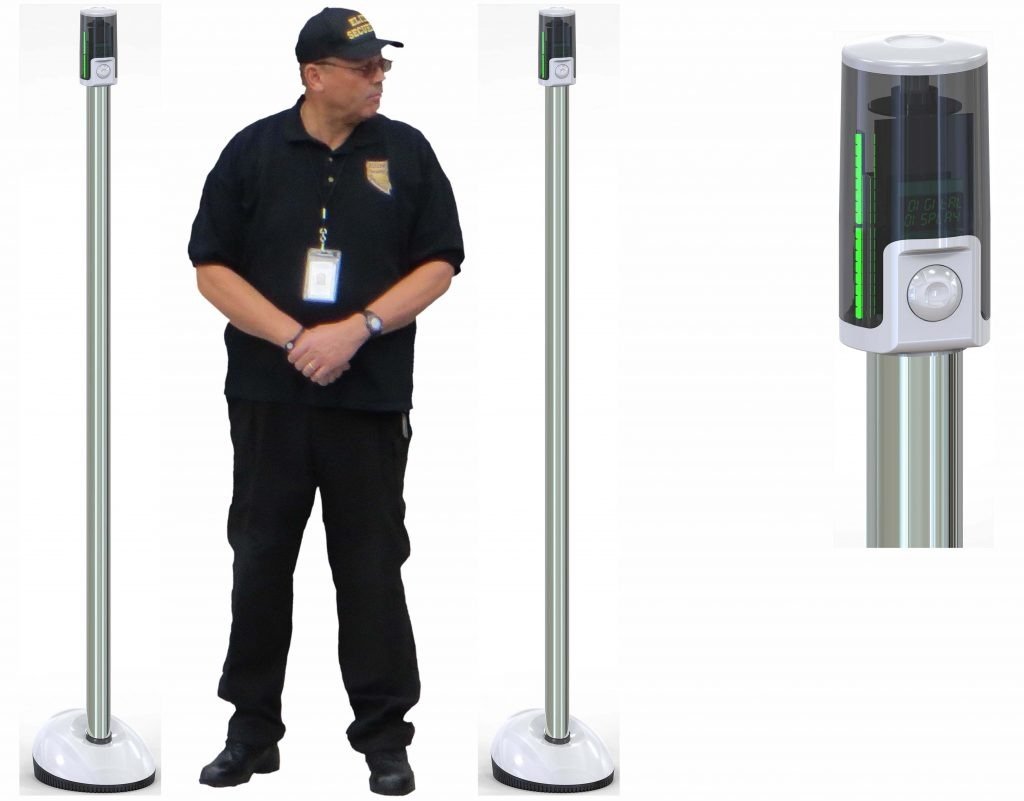Choose the Right Pole Metal Detector Security in India
Security requirements in India are rising, from crowded metro stations to school entrances and high-profile events. A pole metal detector is a versatile and effective tool for security screening, but choosing the right model for your unique needs can be challenging. This guide will help Indian buyers make an informed decision by considering security requirements, local environments, and budget constraints.

1. Assessing Your Security Needs
First, identify your primary use case:
- Venue Size: Are you securing a small school or a large stadium?
- Traffic Volume: High-traffic environments need faster detection and higher throughput.
- Target Threats: Consider whether you need detection for all metals or a focus on specific items (such as weapons or contraband).
Buyers Should Ask:
- Is the detector for indoor or outdoor use?
Do you require advanced features like ferromagnetic detection for cell phones or non-ferrous weapons?se a suitable model.
2. Understand Key Features of Pole Metal Detectors
When comparing models, look for these essential features:
| Feature | Why It Matters |
Sensitivity Level | Detects smaller/larger metallic objects |
Discrimination | Filters out unwanted items or background interference |
Portability | Enables easy transport and quick deployment |
Battery Life | Longer battery ensures uninterrupted operation |
Build Quality | Important for rugged Indian conditions |
Prioritize models that offer adjustable sensitivity and ergonomic design, especially for security staff who will use the detector for long periods.
3. Match Detector Type to Environment
Environmental factors in India—such as humidity, dust, and diverse soil types—play a pivotal role:
- Outdoor Use: Opt for weatherproof or water-resistant builds.
- High-Mineralized Areas: Look for advanced calibration to avoid false positives.
- Rural Deployments: Consider battery-powered portable models due to unreliable mains supply.
If you need maximum versatility, portable pole metal detectors are ideal for temporary or mobile setups.
4. Consider Certifications & Compliance
Ensure the detector complies with Indian safety and security standards (such as BIS or ISO certifications). Certified products are recognized by authorities and crucial for government tenders and institutional use.
5. Learn from Case Studies and User Reviews
Before making your final decision, review:
- Real-world case studies from similar Indian institutions or businesses.
- User testimonials focused on reliability, ease of use, and support service.
These insights give you confidence that the detector meets your performance and durability expectations, especially in demanding Indian conditions.
6. Evaluating Environmental Factors
India’s climate and soil conditions can impact a metal detector’s performance:
- Weather Resistance: Choose detectors with waterproof coils and durable enclosures for outdoor or monsoon-prone regions.
- Soil Type Compatibility: Mineral-rich soils (common in several Indian states) can generate false positives unless your detector has ground balance adjustments.
Portability: Security at temporary checkpoints, event venues, and remote sites often demands lightweight, portable models.
7. Budget and Value Considerations
Budget plays a crucial role, but the lowest price isn’t always the best value.
- Initial Cost vs. Total Cost: Consider not just purchase price, but also the cost of accessories, training, installation, and after-sales support.
- Warranty and Service: Opt for brands with strong warranty terms and local service centers. Quick turnaround for repairs and accessible technical support can prevent costly downtime.
Pro Tip:
Look for suppliers that offer package deals—these can include necessary accessories, training for your staff, and service contracts.
8. Popular Models and Use Cases in India
- Single Pole Metal Detectors: Ideal for smaller entrances, temporary setups, or locations with frequent redeployment needs.
- Ferromagnetic Contraband Detectors: Essential for detecting phones and knives in sensitive spots like prisons or exam halls.
- Portable Models: Best for events, construction sites, and election booths due to ease of transport and setup.
Final Checklist for Buyers
- Define your use case and location specifics.
- List must-have features: sensitivity, portability, battery life, discrimination.
- Match the model to your environment and compliance needs.

